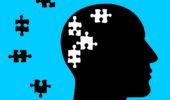Sleep disturbed people are more likely to develop Alzheimer’s disease, according to a new study.
The recent discovery published on Acta Neuropathologica Communications directly demonstrates the link between sleep and Alzheimer’s disease. The work was carried out by a team of doctors and researchers from the University of Turin, including the Sleep Medicine Center of the Città della Salute directed by Professor Alessandro Cicolin and the Neuroscience Institute of Cavalieri Ottolenghi (NICO) directed by Professor Michela Guglielmotto.
The research examined the effects of disturbed sleep on mice genetically predisposed to laying beta-amyloid. The fragmentation of sleep through short awakenings for one month (equivalent to about three years of human life) negatively influenced the functioning of the glymphatic system, increasing the deposition of the beta-amyloid protein and irreversibly compromising the cognitive functions of even young animals. Patients suffering from Alzheimer’s disease they often have sleep problems, which can even reverse the sleep-wake cycle. However, it has also been shown that sleep disorders such as sleep deprivation, insomnia and sleep apnea can negatively affect the course of the disease.
Patients with disturbed sleep show an increase in the deposition of a protein (beta-amyloid) associated with the genesis of Alzheimer’s disease. This increase is due to reduced elimination of the protein from the glymphatic system, which is especially active during deep sleep. Research demonstrates the strong connection between sleep disorders and Alzheimer’s disease, and points out that the neurodegenerative processes characteristic of the disease can also negatively affect sleep regulation, creating a vicious cycle that accelerates disease progression.
Sleep is becoming less and less of an unknown phenomenon: from an initial concept of a simple interruption of wakefulness, sleep is being discovered to be an active phenomenon during which the elimination of neurotoxic substances which accumulate in wakefulness and which regulates our metabolism, the immune and circulatory systems. For this reason, sleep disorders such as insomnia, sleep apnea and restless legs syndrome, which are just some of the most common, are a significant risk factor for obesity, hypertension, diabetes, heart attack , stroke, cancer and dementia, and therefore should be included in preventive health policies.






